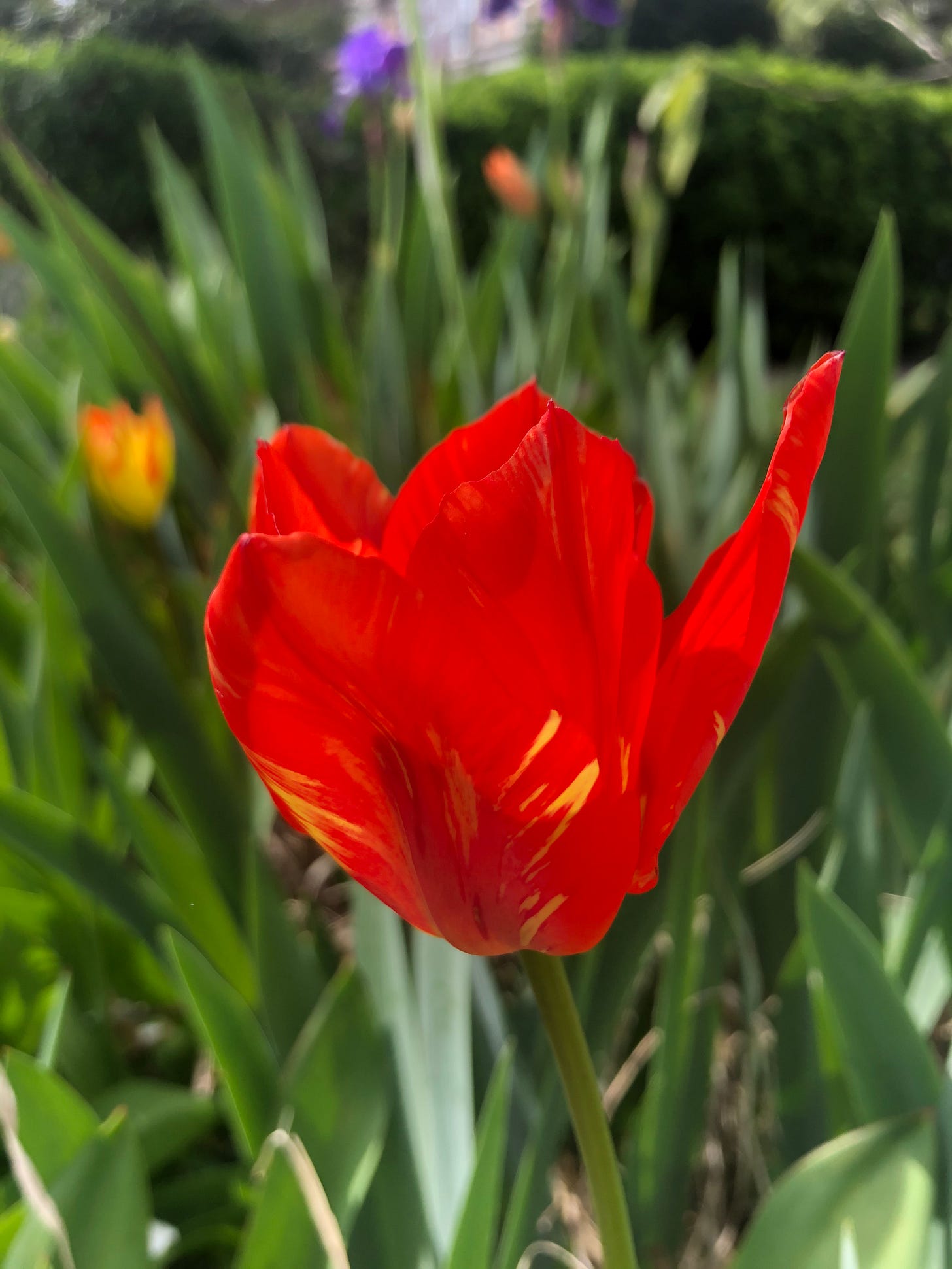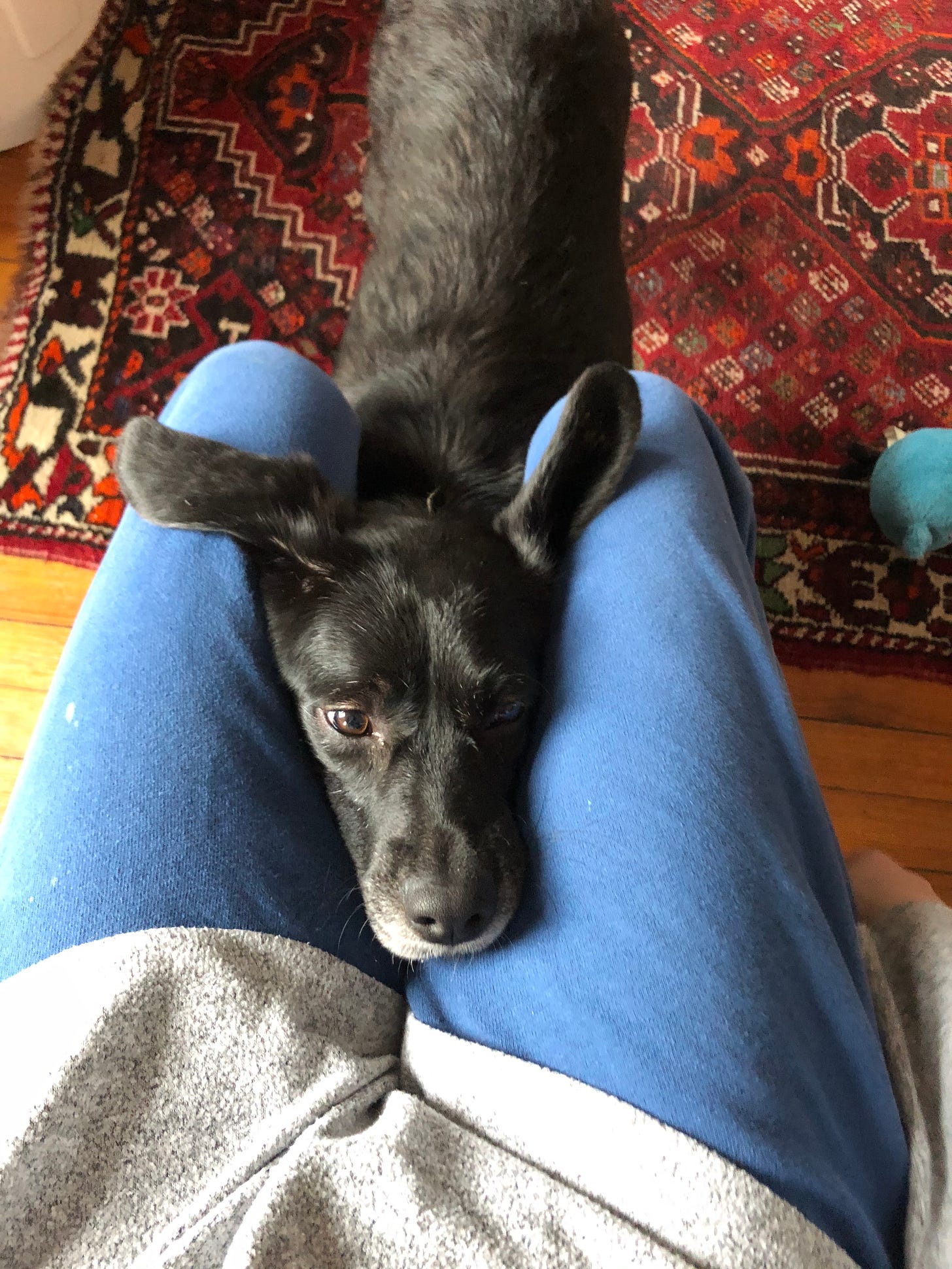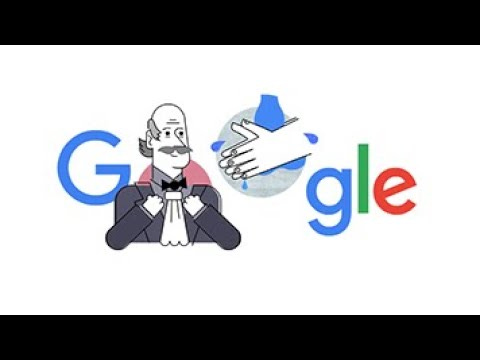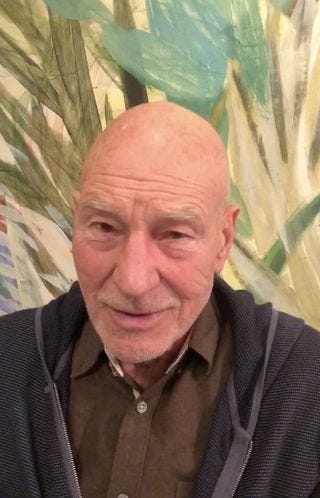How fast things change. When I wrote my March 8 newsletter, I knew The Virus was headed our way, but it still felt distant—a threat OVER THERE, wherever THERE might be. Now the threat is HERE, among us, wherever we are.
I hope you and yours are safe and well and practicing good hygiene. If you missed the Google Doodle this week that features Ignaz Semmelweis—known as the “saviour of mothers” for his crazy idea that obstetricians should, you know, wash their hands before interacting with patients—check it out. (Bonus points for the jaunty music.)
My family’s list of disrupted routines might look a lot like yours: On Tuesday, March 10, I could have dropped by my mother’s assisted-living facility to bring her a coffee and one of the pastries she loves; by Thursday, the facility had banned all social visits. My kids’ school cancelled exams and in-person classes, and implemented its distance-learning program. My husband, a civil servant, has been told to telework for the foreseeable future. Etc.
As an independent writer/editor, I’m not tethered to an office. Normally I love that, but right now I kind of wish I had one to regret not going to. (I do miss my coffee-shop work/social time and my cubby at the Library of Congress.) My reporter instincts have kicked in, and I am looking for ways to document and understand what’s happening—how academic libraries have responded, for instance.
Two weeks ago I was relieved to have turned around the revisions on my book; now I’m wondering if it will get published on time, or ever, and if anybody will care. Like every author who has a book coming out this year, and every publisher and bookseller with a stake in seeing books find their readers, I hope so. Books are no small endeavor.
All of us will roll with these and many other disruptions, because we have to, for everybody’s sake. Who knows how many more disruptions there will be?
Truth: It is hard not to know how bad things will get, how long it will take for the worst to pass, how grievous the human, social, and economic losses will be, and what our lives will look like post-pandemic, whenever that time arrives.
As it will. I do believe that. Hope springs, as my garden reminds me this time of year.

In the meantime, how do we muddle through? I’m trying, in yogic/therapeutic parlance, to sit with the uncertainty, and to practice what my therapist (still available for tele-therapy!) calls flexible thinking. So many possible scenarios to roll with, and so many questions that don’t yet have firm answers.
My immediate uncertainties involve family and friends. When will I see my parents in person again? (I have to believe that I will see them again.) Will my oldest kid, a high-school senior, get to experience the group rituals of prom and graduation, even if it’s in some form she and we never anticipated?
College decisions have been rolling in, bursts of welcome normalcy and news. Will L and her cohort be able to start college in the fall, and what will that experience look like? There is no way of knowing right now. But we can hope.
Speaking of hope, we decided last weekend that we’d foster a dog. Meet Allie, a lab mix rescued from rural North Carolina:

Cute, no? Adding a country gal with questionable manners to an urban household might not have been the wisest move right now. But we figured we’d be home for a while anyway, and might do something kind for a fellow creature (and ourselves).
The good news: Kindnesses abound these days. Neighbors on my DC row-house block have been checking in with and checking up on each other. Friday night, following the lead of another DC neighborhood, we had a porch-and-stoop singalong. (I look forward to many socially distant porch happy hours—not to mention Zoom yoga classes, webinars, and meetups—in the near future.) Those who can have been supporting local businesses by ordering takeout and books and locally sourced products.
Turns out we really are part of a community. I expect you are too. How lovely, even in the shadow of contagion, to be reminded of that.
Some linkage worth your time this week:
1) Want to help but not sure how? The Washington Post has a great roundup of suggestions on how to step up and help out.
2) Indie bookstores keep on keeping on, bless them. My neighborhood indie, East City Bookshop, has switched to an online-and-curbside delivery model. (Maybe yours has too?) DC flagship Politics & Prose has launched a multi-pronged response, including live-streaming author events that can’t take place in person.
3) Related: “Booksellers are great underdogs. We’ve got to be.” (From “Bookselling at the End of the World,” by Stephen Sparks of SF’s Green Apple Books on the Park.)
4) Indie publishers, too, will be hit, are being hit, by the COVID-19 crisis, as my publisher Anne Trubek explains in this installment of her excellent newsletter, Notes From a Small Press. (While we’re here, please go buy one of Belt Publishing’s excellent titles. Bonus: They’re having a sale!)
5) If you’ve been looking for an excuse to read Elizabeth Gaskill’s novel North and South, your moment has arrived.
5) Like my family, many people have decided it’s a fine time to add an animal companion to the household.
6) Okay Zoomer: Zoom has fast become the go-to platform for many of the virtual meetups and hangouts and meetings and other socially distant get-togethers we need right now. Two weeks ago, I had never heard of Zoom, or the phrase “social distancing.” Now they punctuate and shape my days. Go figure.
7) What I’ve been watching and reading this week:
—“Picard,” of course, lifelong Trekkie that I am, though I never really got on the Next-Gen bandwagon. Bonus: Enjoy @SirPatStew reciting one of Will S’s sonnets:
—“Prince of Egypt,” the 1998 Disney animated movie about Moses and the Exodus (plagues, peril, and hope—sound familiar?).
—the audiobook of Mr. Churchill’s Secretary, the first in Susan Elia MacNeal’s Maggie Hope mystery series set in WWII-era London. Because we’ve had darkest hours before, and because spies and intrigue are always fascinating.
—the Kindle edition of Pale Rider: The Spanish Influenza of 1918 and How It Changed the World, by Laura Spinney, which I am reading out loud to my children (more positive than it sounds, really!). Because it’s good to be reminded, as Spinney observes, that pandemics are socio-cultural as well as biological, and to understand how humanity has survived them in the past.
Stay well, friends. Thanks for reading.
Cheers,
Jen



